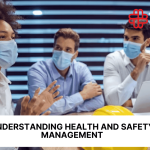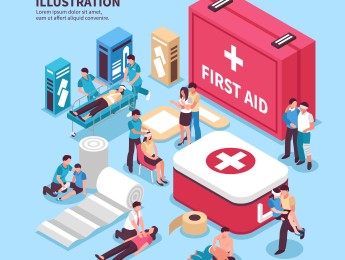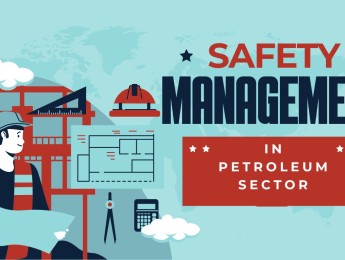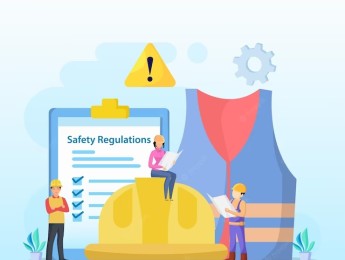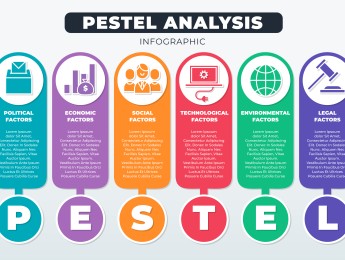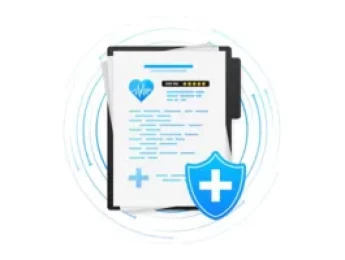The food industry is incredibly vast and expanding globally. However, organisations must adhere to extensive laws and regulations because of its reach and necessity within society. These regulations help ensure food safety standards are maintained at the highest level to protect consumers' health.
Food safety management applies to the entirety of the food chain, from the farms to consumers. Managing food safety throughout this process can help protect organisations from encountering major risks that could harm them or the consumers. To meet the high expectations of food safety, the organisation must have a detailed policy relating to food safety that fully complies with international regulations. These policies should be regularly monitored and adjusted according to identified risks and customer feedback.
A vital aspect of food safety management is risk management. Strong risk management involves assessing all risks and hazards surrounding food processes and systems. The data gathered from assessments allows the organisation to understand potential risks thoroughly and enables those involved in risk management to implement effective preventative measures and plan for corrective actions.
Upon completion of this course, participants will be able to:
- Understand the importance of managing food safety within an organisation.
- Assess the concepts, principles, and industry standards of food safety management.
- Review national and international laws and regulations relating to food safety and ensure full compliance with them.
- Conduct regular risk assessments and hazard analysis to determine potential issues and implement preventative measures.
- Utilise various technological systems to help efficiently manage food processing systems.
- Explore a HACCP professional and team's purpose, skills, and competencies.
- Ensure all food safety measures meet stakeholder wants and needs.
This course is designed for anyone in the food production industry who wishes to develop their knowledge of food safety management. It would be most beneficial for:
- Quality Control Directors
- Operations Managers
- Hygiene Inspectors
- Risk Managers
- Risk Auditors
- Food Safety Consultants
- HR Personnel
- Compliance Officers
This course uses a variety of adult learning styles to aid full understanding and comprehension. Participants will review real-world examples of food safety systems to highlight key safety aspects aligning with international regulations.
They will be provided with all the necessary tools and equipment required to successfully partake in the arranged learning exercises. Participants will have the opportunity to get involved in various seminars, video materials, group discussions and practical activities. This will help them to develop a full and comprehensive understanding of the taught content and practise all relevant practical skills.
Day 5 of each course is reserved for a Q&A session, which may occur off-site. For 10-day courses, this also applies to day 10
Section 1: Introduction to Food Safety
- Defining food safety, importance, and necessity within an organisation and society.
- Acknowledging the history of food safety and how it has evolved into what we know today.
- Predicting future changes to food safety standards.
- Identify various food safety systems and guidelines, such as ISO 22000:2018 and ISO 22000:2005, to understand their role within the industry.
Section 2: Integrating Risk Management into Food Safety
- Creating and establishing the Food Safety Policy in alignment with international food safety regulations.
- Making organisational changes through risk-based thinking.
- Conducting risk and hazard identification assessments to recognise where key risks are.
- Analysing risk and hazard data to create a risk management plan, detailing all preventative measures, corrective actions, and crisis management plans.
- Incorporating risk data into the food management systems and adjusting food safety policies.
Section 3: Managing Resources
- Exploring the resources required to maintain high standards of food safety – people, infrastructure, and work environment.
- Ensure competence on a personal and organisation-wide level and encourage awareness surrounding food safety.
- Maintaining high levels of internal and external communication with all relevant individuals.
- Managing the correct documents, including storing them and updating them when necessary to align with ISO 22000.
Section 4: Operational Planning and Control
- Implementing the required PRPs to ensure maximum productivity.
- Developing intelligent systems to manage all food processes, from incoming resources to outgoing products.
- Acknowledging the organisation’s role within the industry, and the consequences of poor food safety management.
- Merging all organisational goals and objectives with food safety regulations.
- Controlling the product within the organisation and as it’s with consumers – community engagement and product recalls.
Section 5: Measuring Performance
- Understanding the performance monitoring process – monitoring, measurement, analysis, and evaluation.
- Conducting internal audits as described within ISO 22000.
- Providing training and coaching to employees not meeting standards.
- Addressing abnormalities as they occur to prevent a major risk.
Upon successful completion of this training course, delegates will be awarded a Holistique Training Certificate of Completion. For those who attend and complete the online training course, a Holistique Training e-Certificate will be provided.
Holistique Training Certificates are accredited by the British Assessment Council (BAC) and The CPD Certification Service (CPD), and are certified under ISO 9001, ISO 21001, and ISO 29993 standards.
CPD credits for this course are granted by our Certificates and will be reflected on the Holistique Training Certificate of Completion. In accordance with the standards of The CPD Certification Service, one CPD credit is awarded per hour of course attendance. A maximum of 50 CPD credits can be claimed for any single course we currently offer.
- Course Code IND10-102
- Course Format Classroom, Online,
- Duration 5 days


